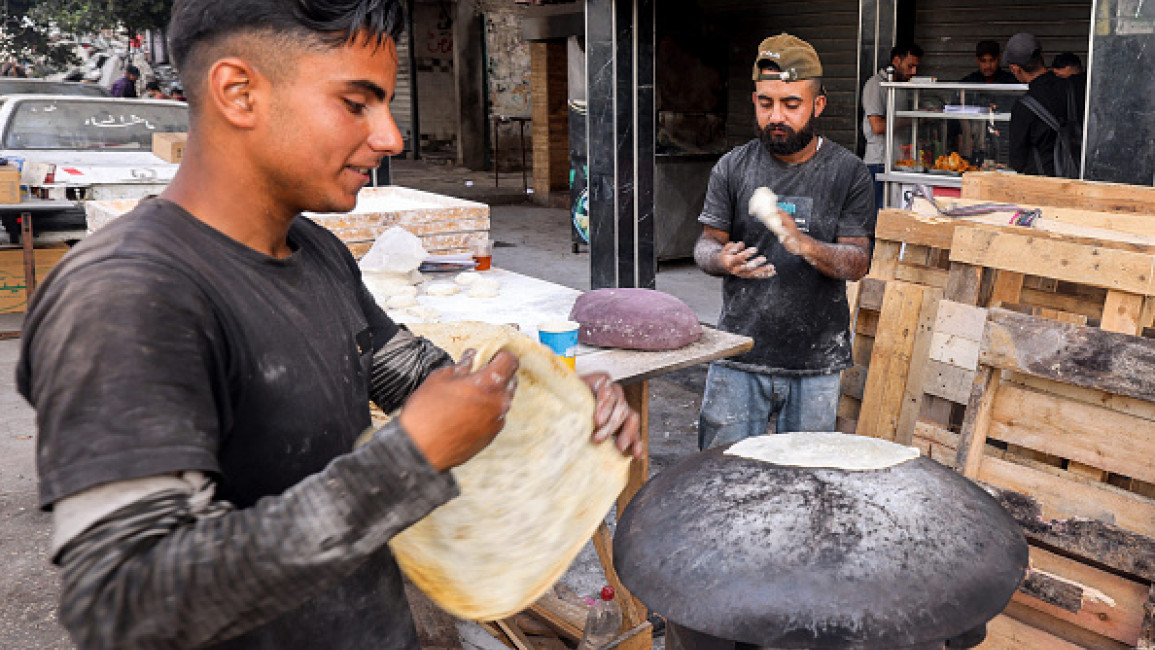Israel's forced starvation of Gaza reminiscent of Assad regime's tactics in Syria
Before 7 October, Naeem al-Najjar lived like any other child, spending his days playing with his friends. Naeem's parents described the six-year-old from the Jabalia camp in the northern Gaza Strip as healthy and full of life.
When Israel's military operation on Gaza started, a day after Hamas's surprise attack, which killed 1,150 Israelis, Naeem's life was turned upside down. He and his four siblings were forced to flee their home as Israel ordered all civilians out of north Gaza – the first of several displacements for the family.
In tandem with its bombardment of Gaza and killing of over 34,000 people, mainly women and children, Israel quickly imposed a punishing siege, restricting the entry of aid shipments into the strip. The result has been famine-like conditions and widespread malnutrition, the UN has said.
Naeem's father tried his best to insulate his five children from the effects of the war but was unable to find a reliable source of food as he moved his family from shelter to shelter. He watched, helpless, as Naeem withered away from a healthy 12-kilogram boy to a shell of his former self at three kilograms.
"We were not able to provide healthy food for our children, not even for ourselves. My child lost all the vitamins needed for his body and could not bear the hunger any longer," Ibrahim al-Najjar, Naeem's 45-year-old father, told The New Arab.
On 5 March, Naeem died due to malnutrition, starved to death by a man-made famine.
"My child died in front of our eyes. He died while he was dreaming of eating and getting eggs, milk and chocolate. My son died as a skeleton without any flesh," al-Najjar said.
Al-Najjar's story is not unique. TNA was provided with at least three other cases of young children starving to death in Gaza.
According to Oxfam, almost all of the population of Gaza is experiencing extreme hunger, with people in northern Gaza forced to survive on just 245 calories a day – less than a can of beans.
Humanitarians have warned that cases of starvation will continue to rise, saying Israel might be deliberately inducing famine-like conditions in the Gaza Strip.
"The extent of Israel's continued restrictions on entry of aid into Gaza, together with the manner in which it continues to conduct hostilities, may amount to the use of starvation as a method of war, which is a war crime," UN High Commissioner for Human Rights Volker Turk said.
The UN and humanitarian bodies have repeatedly called on Israel to allow sufficient aid trucks into Gaza, but Israel has yet to provide adequate aid access to the territory.
'The same tactics'
To human rights activists watching man-made famine rip through Gaza, the scenario seems a familiar one. The weaponisation of aid and the besieging of civilians brings memories of the siege of Aleppo, the siege of eastern Ghouta and Darayya as the Syrian regime tried to starve out rebel factions.
"It reminds me of what happened in eastern Ghouta when people were eating the grass, the leaves of the trees. It's so sad to see the same tactics being followed," Fadel Abdulghani, the director of the Syrian Network for Human Rights, told TNA.
News reports of Gazans baking bread out of animal fodder and eating grass have trickled out as food supplies have run dry in the strip.
In Syria, human rights organisations accused the regime of restricting the entry of food, water and medicine into opposition-affiliated territories until rebels were forced to surrender.
The regime divided and isolated opposition areas one by one, collectively punishing the populations there until they could re-impose military control over the areas.
Activists and Gazans alike have accused the Israelis of similarly weaponising its aid blockade.
Mohammed Abu Hazza, 39, blames the Israeli government for the death of his diabetic sister Sherine, who died on 9 March from a lack of food and medicine.
"I was moving from one house to another in order to find some food. I also moved between hospitals in order to find the necessary medicine and an alternative to food, but all my attempts failed," Abu Hazza told TNA.
Israel has said that it has improved the entrance and distribution of aid in Gaza, but the number of aid trucks entering the strip had declined as of UN data in February.
Abdulghani pointed to the fact that the Assad regime was able to act with impunity in its weaponisation of aid, which has made it easier for states like Israel to utilise similar tactics.
"The international community's reaction or behaviour should be to protect the spirit of human rights and to behave the same, equally, in all contexts … otherwise, they are acting politically," Abdulghani said.



